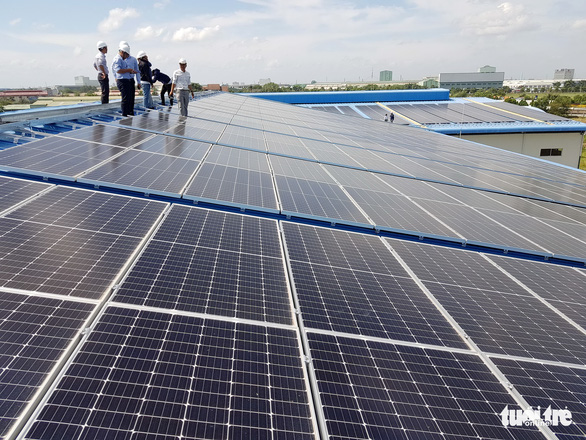Vietnam has emerged as a bright spot in Southeast Asia as it is taking the lead in transition to clean energy from fossil fuels in the region, according to The Economist.
Southeast Asia is one of the parts of the world most susceptible to climate change, but this smoke-belching region seems uninterested in forsaking fossil fuels, the Vietnam News Agency cited a recent article of the British weekly newspaper as saying.
Vietnam is a bright spot on an otherwise soot-black map.
Over the four years to 2021, the share of solar-generated electricity in Vietnam increased from practically nothing to nearly 11 percent.
“Not only was this a faster rate of increase than almost anywhere else in the world. It is a bigger share than larger economies such as France or Japan have managed,” the newspaper evaluated.
Vietnam had become the world’s tenth-biggest producer of solar power by 2021, and Prime Minister Pham Minh Chinh underscored his country’s commitment to the energy transition by pleading in last November to stop building new coal-powered plants and to reduce his country’s emissions to net zero by 2050.
PM Chinh made the commitment while attending the 26th United Nations Climate Change Conference of the Parties (COP26), held in Glasgow, Scotland (the UK) from October 31 to November 13, 2021.
“Other Southeast Asian countries hoping to up their game can learn a few lessons from Vietnam,” the newspaper said.
Actually, Vietnam has quadrupled its wind and solar power capacity compared to 2019, and this “extraordinary achievement” has primarily resulted from its political will and market incentives, the article commented.
Five years ago, the government began paying solar-power suppliers a fixed rate “feed-in tariff” of as much as US$9.35 cents for every kilowatt-hour they delivered to the grid.
Such a rate was generous as costs usually range between 5 and 7 U.S. cents per kilowatt-hour.
As a result, the country saw 100,000 rooftop solar panels installed during 2019 and 2020, increasing its solar capacity by a huge 16 gigawatts.
Meanwhile, other Southeast Asian countries have tried feed-in tariffs, but they have been insufficiently enticing, according to the article.
Reforms to facilitate foreign investors in doing business in Vietnam have also helped in the field, too.
However, Vietnam will have to work even harder if it is to achieve net-zero emissions by 2050, experts said.
The country’s demand for energy has grown by about 10 percent a year over the past decade, according to Dezan Shira, a consulting firm pointed out, adding that more and more of it is being met with coal.
The Vietnamese government must also ensure that the economy continues to boom even as the country weans itself off coal.
Government planners “need to ramp up wind and solar very quickly, year in, year out”, said Professor Burke of the Australian National University.
Planners also need to expand and upgrade the national grid so that it can cover the entire country and is able to cope with the intermittent nature of power supplied by renewable sources, the professor said.
Like us on Facebook or follow us on Twitter to get the latest news about Vietnam!



















































